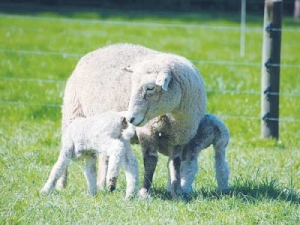Top wool advocate bales out
The conversion of productive farmland into trees has pretty much annihilated the wool industry.
 Despite a strengthening NZ dollar, the varied selection at this week's South Island auction attracted strong support.
Despite a strengthening NZ dollar, the varied selection at this week's South Island auction attracted strong support.
Despite a strengthening NZ dollar, the varied selection at this week's South Island auction attracted strong support.
New Zealand Wool Services International Ltd's chief executive John Dawson reports that of the 7700 bales on offer 85% sold.
The weighted currency indicator was up 2.06% compared to the previous week's auction.
Dawson advises a selection ranging from 21 micron merinos to 42 micron coarse wools with a cross section of styles and lengths provided attractive options to buyers which overrode the possible negative impact of the stronger dollar compared to the similar South Island offering on July 14.
Mid micron fleece were well supported with increased Chinese interest, lifting 4 to 12%.
Fine crossbred fleece and shears were 2 to 3% firmer. Coarse crossbred full fleece lifted 3% for all styles with coarse shears ranging from firm to 3.5% dearer. Oddments were up 3 to 5%.
Where comparable to last week's North Island auction, levels are 4 to 7% higher.
Good competition with Australasia, Western Europe and China principals, supported by Middle East, India and United Kingdom.
The next sale on August 4 comprises about 5000 bales from the South Island.
Tickets are now available for Beef + Lamb New Zealand’s (B+LNZ) Out the Gate, returning from 19-21 May 2026 at Te Pae, Christchurch.
Dairy Women's Network (DWN) is welcoming AgriHealth as a new partner.
Northland Field Days patron Ross Newlove remembers the inaugural field days he attended 40 years ago.
Southland farmer Murray Donald has been appointed as chair of Safer Farms, the industry-led organisation focused on reducing harm, injuries and fatalities in the agricultural sector.
National Lamb Day returns this Sunday, 15 February, with Beef + Lamb New Zealand Inc calling on Kiwis to fire up their barbecues and celebrate the people and the product that put New Zealand on the world map.
When it comes to arranging the sound system at Northland Field Days, no one does it better than Colin Finlayson.